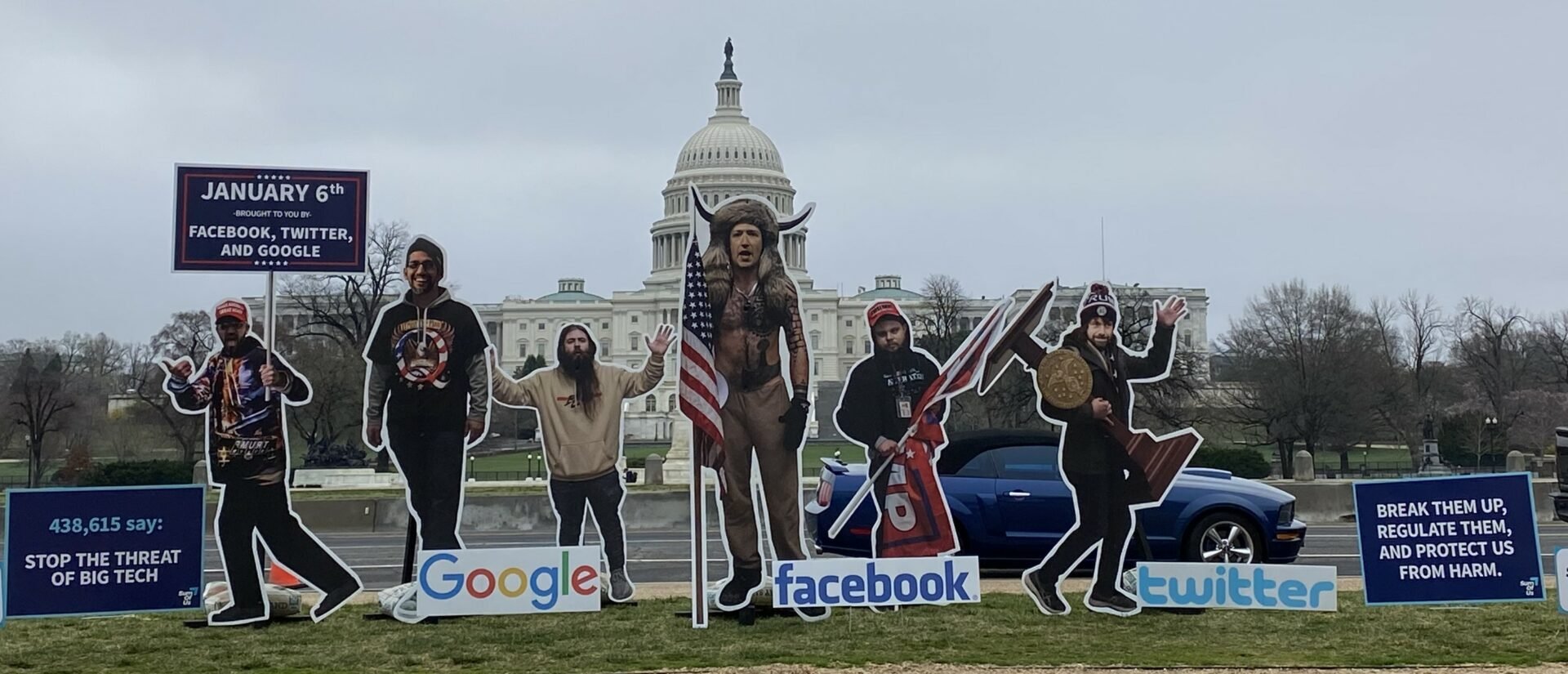
How tech billionaires are killing internet for all
Case study: Big Tech’s Monopoly Power
What unites Big Tech firms is the fact they have built empires by deploying monopolisation strategies
Summary
Google and Facebook became so dominant that advertisers and publishers feel locked into their advertising systems, especially if they wanted to access users’ attention and the most valuable personal data. This is especially problematic as publishers tend to use only one ad seller and switching between services is difficult.
Surveillance advertising firms left users without control over how their personal data is used due to the immense complexity of the system of intermediaries and the multiple ways their data is used.
Big Tech firms force users to allow them to collect and process an increasing amount of their data to use their services, in a ‘take it or leave it’ process, a Devil’s bargain. As users are locked in they cannot avoid the platforms, in spite of the exploitative terms.
Google and Facebook heavily lobbied against regulation of surveillance advertising, for instance, blocking the European Parliament’s calls to ban the practice under the Digital Services Act.
Nearly half of the world’s richest men – and they are all men – made their money via technology companies. Once hailed as disruptors and garage inventors, Jeff Bezos, Mark Zuckerberg, Bill Gates, Sergei Brin, Steve Ballmer, and Larry Page accumulated their immense wealth by building digital monopolies.
For these billionaires and their companies, Davos has been an opportunity to rub shoulders with policy-makers, offering “private demonstrations” of their products, hosting “cocktail receptions”, and arranging CEO meetings while pitching ways to become policy partners—an opportunity to clean their public image and shore up their power.
At this year’s event, we expect tech billionaires and their corporate representatives will want to discuss the potential risks created by the development of (their) artificial intelligence (AI) products. They will pitch themselves as part of the solution. They will also likely omit how they grew rich by monopolising the digital sphere, obsessed with domination with little to no care for who it hurts. Now, their power puts them in a prime position to dominate the next generation of technologies, including but not limited to AI.
The myth of the tech inventor working from their garage is well dead. In its stead, we have a small cohort of tech billionaires who set the rules for the digital economy and reap most of the rewards.
Along the way, they have harmed smaller businesses, people’s fundamental rights, the health of the digital public sphere, and democracy itself.
The rise of the Big Tech monopolies
The companies that we now refer to as Big Tech – Microsoft, Apple, Amazon, Alphabet, Meta– have grown in different waves of technological development, and their businesses vary greatly in their focus.
Big Tech firms deployed monopolisation strategies by:
- positioning themselves as intermediaries of an immense number of interactions happening online, allowing them to accumulate data like never before;
- prioritising fast expansion, with an obsession with growth and scale to exploit network effects to keep users locked in;
- creating moats around their services to ensure no competitor can challenge them;
- whenever a competitive threat appeared, either buying or killing it (or both)
By doing this, each company gained control over specific markets, essentially becoming a gatekeeper that controls access to them and dictates the rules for a large swathe of businesses, public services and communities trapped in their strong gravitational fields.
Do you need more information?
-

Margarida Silva
Researcher
Big Tech's monopoly power
-
 Case study – Big Tech’s monopoly power (pdf, 480.14 KB)
Case study – Big Tech’s monopoly power (pdf, 480.14 KB)
This case studie is part of a wider project on billionaires and monopoly power called 'Taken, not earned'. For more information see
Related news
-

-
 Digital Markets Act: Big Tech’s pushback faces up to a bold EUPosted in category:Long read
Digital Markets Act: Big Tech’s pushback faces up to a bold EUPosted in category:Long read Margarida SilvaPublished on:
Margarida SilvaPublished on: -
 EU health data law rolls out the red carpet for Big TechPosted in category:Long read
EU health data law rolls out the red carpet for Big TechPosted in category:Long read Irene SchipperPublished on:
Irene SchipperPublished on:

